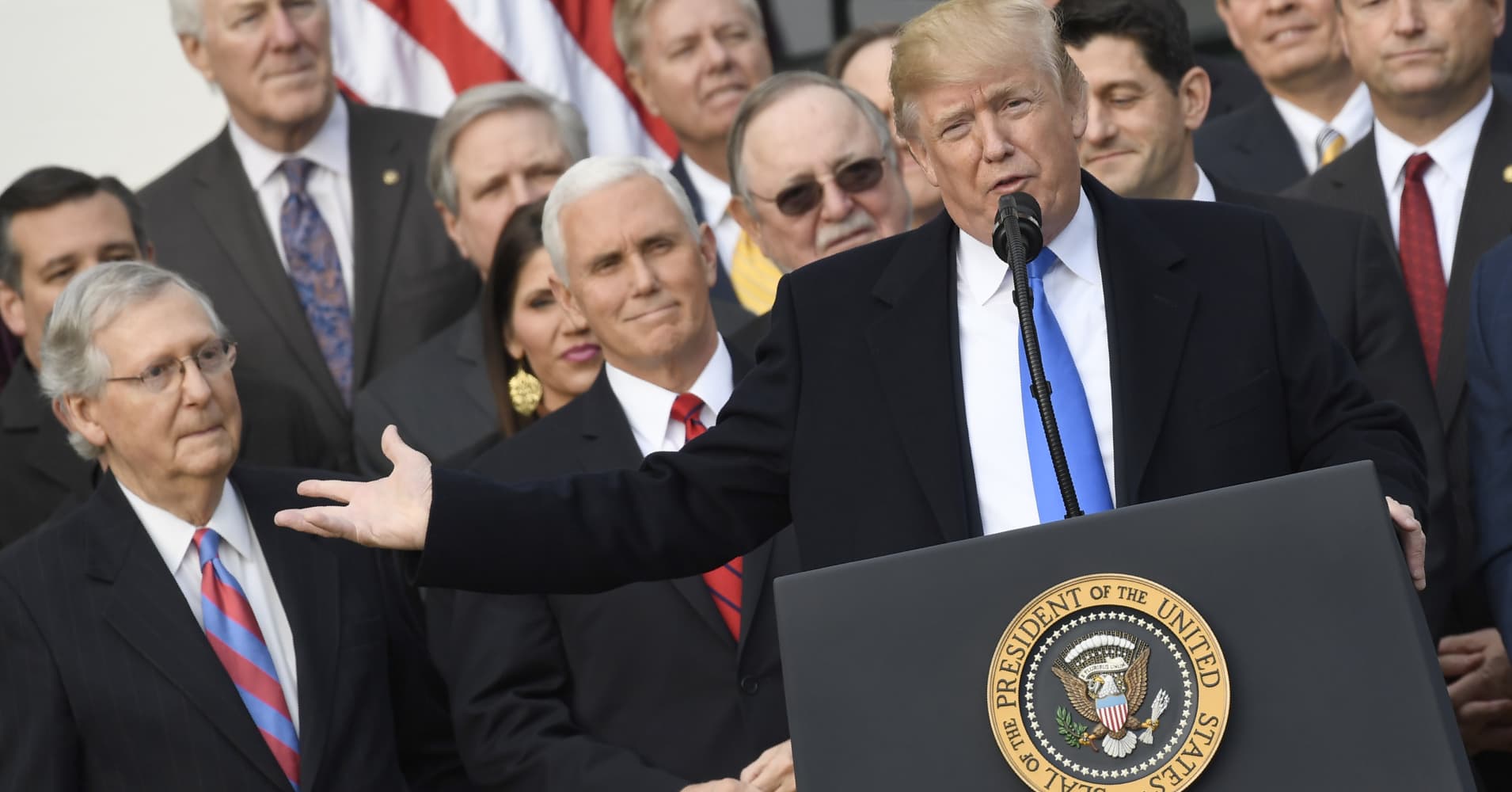
Presidents often make extravagant claims for their policies. But rarely are they proven so false so fast as Donald Trump's claims about tax-cuts and deficits.
Those claims date back to Trump's 2016 presidential campaign. He first proposed a $10-trillion tax cut far larger than any Republican rival's, but insisted it wouldn't boost the federal budget deficit even temporarily because the economy would "take off like a rocket ship."
His own advisers knew that was impossible, so Trump sharply pared back this proposal. But he continued to maintain the deficit wouldn't rise.
That claim was politically-important for Congressional Republicans. They relentlessly attacked President Barack Obama for increasing deficits and debt.
"Not only will this tax plan pay for itself, but it will pay down debt," Treasury Secretary Steven Mnuchin asserted as Congress debated the Trump tax cut. Mnuchin named two factors – increased economic growth and reduced corporate tax avoidance – that would offset revenue losses from lower rates.
"The years when we increased deficits are years when the economy is slowing down," added then-National Economic Council director Gary Cohn. He explained lower rates would lead corporations to shift taxable operations back to the U.S. from abroad.
House and Senate leaders used those arguments to reassure Republican holdouts. "We're right there in the sweet spot with economic growth that gives us more revenue," Speaker Paul Ryan declared.
"We fully anticipate," added Senate Majority Leader Mitch McConnell, "this tax proposal in the end to be revenue neutral for the government if not a revenue generator."
A few skeptics worried anyway. Calling debt "the greatest threat to our nation," Sen. Bob Corker of Tennessee vowed to oppose it "if it looks like to me…that we are adding one penny to the deficit."
He had good reason for skepticism. Deficits rose after tax cuts under Republican Presidents Ronald Reagan and George W. Bush. Independent economic forecasters, liberal and conservative alike, projected the pattern would repeat.
Ultimately Corker joined fellow Republicans in finding reasons to go along. Having failed to repeal Obamacare, they yearned for a legislative victory.
Some considered tax cuts their highest priority. Others privately welcomed deficits as a prod to shrinking government. Still others resolved their ambivalence by siding with their party.
"There are about as many economists as there are opinions," said Rep. Tom Cole of Oklahoma. "In the end I'm going to trust the people who are philosophically aligned with me."
In June, six months after the tax-cut passed, Cohn's successor Larry Kudlow claimed the deficit "is coming down rapidly" due to economic growth. Now, the government Trump oversees has demonstrated the opposite.
Even as growth has accelerated, the Treasury reported that the 2018 deficit swelled to $779-billion. That level, the highest in six years, marks a 17 percent increase over 2017.
Federal spending as a share of the economy fell. But revenue fell even more, with corporate tax receipts plummeting 31 percent. The Congressional Budget Office forecasts deficits hitting $981-billion in 2019 and exceeding $1-trillion every year after that.
As predictable as that was, it represents a lightning-fast falsification of a major commitment. It took three years the Affordable Care Act passed for Americans to learn that in some cases they couldn't keep their existing health plan as Obama had promised – a pledge Politi-Fact labeled "Lie of the Year" in 2013.
The Trump administration has long since abandoned its pledge that wealthy Americans wouldn't receive tax cuts; they actually received the largest cuts. Testing other promises requires more time.
As early as 2021, White House economist Kevin Hassett says, effects of the tax cut will bring average families a $4,000-a-year raise. So far, worker pay increases have been largely gobbled up by inflation.
More significantly, Trump promised tax-cuts and the rest of his economic program would boost annual economic growth to 4 percent or higher. More cautious advisers pared back that claim and said Trump will create sustained growth of 3 percent or more.
Either benchmark would be a major boost from long-term forecasts of 2 percent growth before Trump took office. After the government reported second-quarter 2018 growth of 4.2 percent, the White House and Republican allies hailed evidence of a promise kept.
Not so fast. Economic forecasters project third-quarter growth falling below 4 percent - and slowing further after that.
Mark Zandi, chief economist of Moody's Analytics, envisions growth ending up at 2.9 percent for 2018, 2.8 percent for 2019, and just .9 percent for 2020. Over the long-run, major forecasters still see the economy on a path of 2 percent growth.
via IFTTT
No comments:
Post a Comment